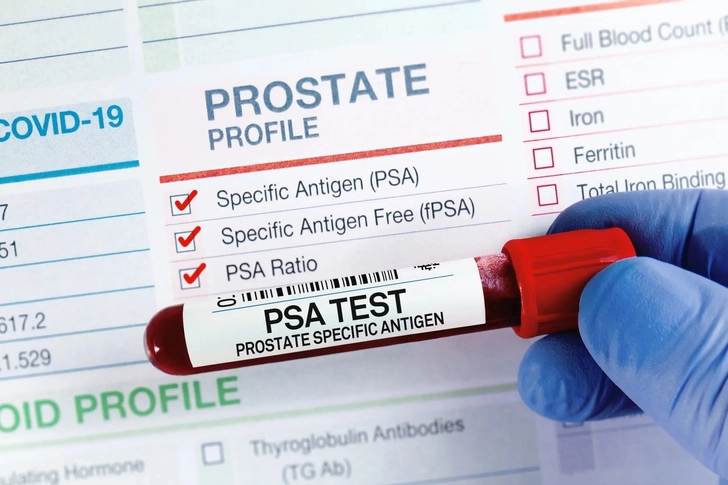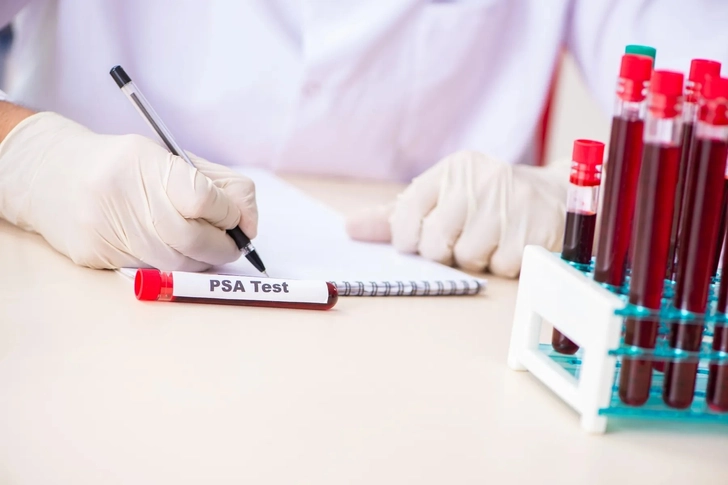- Overview
- Causes & Risks
- Symptoms, Stages & Types
- Tests & Diagnosis
- Your Prostate Cancer Care Team
- Treatment
- Remission & Recurrence
- Living With
- Support & Resources
- Appointment Prep
- View Full Guide
Your PSA Level After a Prostatectomy: What Do Your Numbers Mean?


PSA Number
Your PSA level after a prostatectomy (surgery to take out all or part of your prostate) is a crucial part of monitoring and managing prostate cancer treatment. It provides valuable information about how well the surgery worked and the chances of cancer coming back. But cancer testing can cause a lot of anxiety. And because the results aren't always clear, you may worry about them. To ease your worries, here's a breakdown of what your PSA numbers mean and what to do next.

The Purpose of PSA Testing
The primary reason for having a PSA test after a prostatectomy is to find out how well the surgery went. Prostate-specific antigen (PSA) is a protein released by cells in the prostate gland, and its levels can indicate the presence of cancer. After a prostatectomy, the goal is to remove all cancer cells, and a PSA test can help detect any remaining cancer or its recurrence.

When to Get Tested
Your first PSA test after a prostatectomy will be scheduled 1 to 3 months after the surgery. This waiting period is necessary because some PSA may still be present in your bloodstream. Subsequent tests will be done every 6 to 12 months for up to 5 years, depending on your doctor's recommendations. If you are at high risk for cancer recurrence, your doctor may advise more frequent testing.

Understanding Your PSA Numbers
PSA levels are measured in nanograms per milliliter (ng/mL), and the normal range is below 4 ng/mL. After a prostatectomy, your PSA levels should drop to almost zero within 4 weeks. A PSA level above 0.2 ng/mL a few months after the surgery could mean your cancer has come back. But it is essential to keep in mind that PSA levels can vary from person to person, and a single elevated test result does not always mean cancer.

The Importance of PSA Velocity and Doubling Time Tests
To get a more accurate picture of your cancer status, your doctor may recommend other tests, such as PSA velocity and doubling time. These tests measure how quickly your PSA levels are changing over time. A rapid increase in PSA levels could mean there's cancer or it's getting worse. These tests can help your doctor predict how likely it is for your cancer to spread and determine the next steps in your treatment.

What to Do Next
If your PSA levels are high, it is natural to feel anxious and worried. But it's important to keep in mind that PSA testing alone does not diagnose cancer. Your doctor will consider your PSA levels along with other things, such as your medical history and other tests, to make an accurate diagnosis. If your cancer has recurred, you may need to manage it with further treatment, such as radiation or hormone therapy.

An Important Part of Your Overall Treatment
PSA testing after a prostatectomy is crucial for monitoring and managing prostate cancer treatment. It provides valuable information about how well the surgery went and the chances that your cancer will come back. While understanding your PSA numbers can be overwhelming, it's crucial to keep in mind that they're not the final word on your diagnosis. Working closely with your doctor and staying informed about your options can help ease your worries and guide your treatment decisions.
IMAGES PROVIDED BY:
Shutterstock
SOURCES:
American Cancer Society: "Following PSA Levels During and After Prostate Cancer Treatment."
American Urological Association: "PSA Testing for the Pretreatment Staging and Posttreatment Management of Prostate Cancer."
British Journal of Medical and Surgical Urology: "PSA velocity and doubling time in diagnosis and prognosis of prostate cancer."
Harvard Medical School: "Immediate radiation when PSA levels spike after prostate cancer surgery helps reduce risk of recurrence."
Johns Hopkins Medicine: "Radical Prostatectomy," "Top Prostate Cancer Questions," "What Happens if PSA Comes Back After Surgery?"
Mayo Clinic: "PSA Test."
National Cancer Institute: "Prostate-Specific Antigen (PSA) Test."
National Comprehensive Cancer Network: "Guidelines for Patients: Prostate Cancer."
Prostate Cancer Foundation: "PSA Rising."
Urology: "Timing of PSA nadir after radical prostatectomy and risk of biochemical recurrence."
U.S. Preventive Services Task Force: "Prostate Cancer: Screening."